- Home
- Robert Hellenga
The Sixteen Pleasures Page 5
The Sixteen Pleasures Read online
Page 5
Later on Signor Bruni helped Mama organize the obligatory student trips to Rome and Venice, and he helped me with my lessons. I didn’t start to speak until Christmas, but I learned by heart the principal mountains, rivers, cities, etc., of each province, which I could rattle off in front of the class when I was being “interrogated”—often eliciting enthusiastic applause from my classmates. The terror of those interrogazioni was so great that though I can’t remember isolated facts, once I get started I can still run through long stretches of that useful information.
By Christmas it had become clear that the year would be a success. We were coasting downhill, time was speeding up, the program was going well; I had lots of friends, and I could talk. I couldn’t stop, in fact. Talk, talk, talk. Papa came for a surprise visit in the spring and went on the student trip to Venice with us, and Signor Bruni couldn’t go at the last minute, and I got lost and took the vaporetto all the way out to the Lido, and Papa found me, and that night in a fancy restaurant on the Rialto Mama kept saying that some women at another table were giving her dirty looks. We never stopped kidding her about that, Papa and I. Why would anybody be giving her dirty looks? But she never backed down.
It wasn’t till I returned to Florence two years later, to finish the last year of the liceo with my former classmates, that I discovered what must have been obvious all along to a more sophisticated eye, that Mama and Bruno Bruni had been lovers. It was a chance remark by one of the teachers at Linguaviva, whom I met on the street, that set me thinking: about Signor Bruni’s presence when I came home from school, about telephone conversations in the night, about fresh flowers, and a man’s glove on the landing, a new dress, a haircut. These were the pieces of the puzzle. I tried on various emotions, but none of them seemed to fit. I worked up a little anger, which I vented in a letter that I never sent, a little indignation, a little melancholy (the pleasing kind I associated with Chopin) . . . To tell the truth, I was just a little bit thrilled.
One of the things that used to turn up when Mama and I got lost on our walks was the beautiful little cemetery just before you get to Settignano. We’d come out of the woods, or up over a little rise, or around a curve on whatever path we happened to be following, and there it would be, and we’d know where we were. The little village would be just up ahead with another Communist bar, another Casa del Popolo, where we’d stop for something to drink before taking the bus down to the city.
When I reached the cemetery I paused for a while, hugging myself against the cold. The cemetery is a level plot, a stairstep cut out of the hillside just below the road. Many of the gravestones boast pictures of the deceased in waterproof plastic ovals that glitter like eyes in the sunlight. Many sport little lights that burn perpetually (as long as the family pays the electric bill every three months).
Shortly before she died Mama made a tape for us, several tapes. She had some things she wanted to say, big things, little things. It was kind of a mystery. What could she possibly have to say that she hadn’t said, or couldn’t say to our faces? After all, we weren’t one of those families that couldn’t talk to each other or express our emotions. If anything, we were at the other end of the spectrum.
“I just want to be able to say things as they occur to me. I don’t want to have to call you. So many things come to me during the day, and at night, too, especially at night. So many happy memories—some unhappy ones too—but mostly happy. I want you to have a record of that. So many things to say to each one of you, and all of you.”
So Papa set up a tape recorder by the bed. An amateur musician, he had lots of recording equipment and made quite a production out of it.
“Why don’t you just get me one of those little cassette recorders?” Mama asked, but Papa had to do things in a big way. He set up his two-track tape recorder next to the bed, on the table where Mama kept her medication. He bought two new low-impedance microphones and tried out every possible permutation of microphone locations and settings on the tape recorder. It was his way of working off some of his frustration.
“Testing. One, two, three, four, testing. Now you do it.”
But Mama didn’t want to do it. “I feel like I’m onstage; on the radio.” One mike was on a boom that swung over the bed. “I want this to be private.”
“Testing. One, two, three, four, testing.”
And the tape recorder would repeat: “Testing. One, two, three, four, testing.”
The finishing touch was a remote punch-in/out switch that Mama could keep on the bed beside her so she wouldn’t have to twist around to start and stop the recorder. All she had to do was punch a button.
“I’ve always wanted one of these anyway,” Papa said. “That’s how professionals correct their mistakes. If you’ve got a sour note, you just play along with the tape, and when you get to the sour note, you punch in and then out and it records right over it.”
Once Papa had everything in place Mama felt better. She had an object in her life, what remained of it. A mission. Something to be accomplished. Something that could not have been accomplished under any other circumstances: the recording of a happy and productive and sometimes turbulent life under the pressure of death. Death was a lens that would reveal things as they really were: what was important would assume its true importance; what was unimportant would recede into the shadows.
Mama kept the tapes right on the bed. She didn’t want us to listen to them while she was still alive. But during the long summer afternoons we could hear the tape recorder clicking on and off. Sometimes, when I got up to go to the bathroom in the middle of the night, I’d hear the familiar click and put my ear to her door, but I couldn’t make out what she was saying, only the faint murmur of her weakened voice.
She filled up half a dozen seven-inch tapes. Seven hours. And when she’d said what she had to say, she stopped talking. A week later she died, and ever since her death the house had seemed strangely silent, even when Papa was playing his guitar and we were all singing.
It was over three years before we worked up the courage to listen to the tapes, which had been stored on a shelf in the dining room closet next to the Waterford crystal that we never used anymore. When I say “courage” I don’t mean that we were afraid of what we might hear. I mean we were afraid we wouldn’t be able to bear it, especially during the holidays. But we’d had a wonderful Christmas, and we were feeling strong. Papa, who was an avocado merchant on Chicago’s South Water Market, had let the business slide after Mama’s death and was working for someone else now, but he was in pretty good spirits. After a two-year apprenticeship with a binder in Hyde Park I’d found a job in the conservation department at the Newberry. Molly had moved to Ann Arbor; Meg had married and was expecting, and her husband, Dan, was just perfect. Handsome, romantic, practical, talented. Papa had been teaching him to play the blues harp, and he’d learned so quickly that they’d made a tape together—Papa on the guitar, Dan on the harp, Meg and Molly singing the blues songs that had embarrassed us as children, and that still embarrassed me:
Mr. Jelly Roll Baker
let me be your slave
when Gabriel blows his trumpet
you know I’d rise from my grave
for some of your jelly
some of your good jelly roll
you know it’s doin’ me good
way down deep in my soul.
It was New Year’s Day. Meg and Dan were going to drive back to Milwaukee that afternoon. Molly would be at home with Papa and me for another couple of days before going back to Ann Arbor. It just seemed like the right time, and I don’t think anyone was surprised when Meg brought one of the tapes into the living room, holding it tight against her big swelling belly.
Papa got up and without a word began to thread the tape; Meg poked a couple sticks of kindling under the smoldering logs in the fireplace and then sat down next to Dan at the piano and filled up the silence with a chorus of �
�Fum Fum Fum,” Mama’s favorite carol: A venti-cinq de desembre, fum fum fum. Molly and I were sitting at opposite ends of the couch, the bottoms of our bare feet pressed together.
Papa switched on the tape recorder and there was a moment of silence so intense that the dogs, snoozing in front of the fire, perked up their ears. (If Mama had been there she’d have made them lie on their own rug under the piano.) Papa hurried across the room and into his chair.
I suppose we each brought different questions to that moment, even Dan, who had never met Mama, but who’d heard enough about her, and maybe we were in fact a little apprehensive. What was going to emerge as truly important? What was going to recede into the shadows?
I don’t know what the others were thinking, but I was wondering about Signor Bruni. I’d never talked Signor Bruni over with anyone, not even Meg or Molly, and I was still curious because I couldn’t fit him into the picture I had of our family. Papa and Mama had had plenty of differences, which they never bothered to conceal from us, but on the whole our family life was shaped by the love they felt for each other and expressed, physically, all the time. Neither one could walk by the other without a little pat on the backside, and they were always taking naps when they couldn’t possibly have been tired. So where did Bruno Bruni fit into the picture? Was he one of those things that was going to assume its true importance? Or was he going to recede into the shadows? I don’t know why it seemed so important, but it did.
We waited and then waited some more. Papa got out of his chair and made some adjustments. Still no sound. He ran the tape forward for a few seconds and tried again. Still nothing. The big reels turned in silence. Papa ran the tape forward again. Nothing. He turned it over and tried the other side. Still nothing. Meg got up and brought the rest of the tapes from the dining room closet. They were all clearly labeled: August 5–10, 1960. August 10–14, 1960. August 15–19, 1960. And so on. Papa tried one after another, but there was no sound.
*
I’d never seen Papa—or any adult, for that matter—really lose control before. It didn’t happen all at once, but you could hear it coming. He spent the rest of the day at the tape recorder, trying this and then that. If you’ve ever hooked up a sophisticated stereo system you’ll know that in cases like this there’s usually some button that needs to be pushed, or a knob that needs to be turned, or a patch cord that’s plugged into the wrong hole. It’s as simple as that. But Papa exhausted all the possibilities. The rest of us, sitting in the kitchen, could hear him cursing softly, nonstop. Occasionally there was a blast of sound as he tried some other tape, or turned on the tuner, but he couldn’t coax any sound out of Mama’s tapes, and finally he cracked. He didn’t break anything, he just started screaming—shouting, swearing as loud as he could. And then he started to cry, really cry, huge rattling sobs, as he stumbled up the stairs.
Meg and Dan left for Milwaukee about three o’clock. Dan had to go back to work the next morning. Molly and I emptied the dishwasher and filled it again and washed the dishes that wouldn’t fit in the second load. We put the turkey carcass in the stockpot and covered it with water and turned it on to simmer. Molly scrubbed down the butcher’s table with bleach, the way Mama used to do, while I put the spices back in alphabetical order. And then we took all the jars and lids out of the closet in the butler’s pantry and matched them up. It was like trying to match up socks; there were a lot of odd jars and a lot of odd lids left over.
Finally, when there was nothing more to be done, we went upstairs. I’d never been afraid to approach my father before, even when he was angry. But I was afraid now, afraid of what we’d find. We tiptoed through Mama’s study and pushed open the bedroom door. Papa was lying facedown on the bed. The late-afternoon sun, caught by the beveled edges of small windowpanes, covered the bed with tiny rainbows. Papa’s pale hair—once carrot red—was flecked with light.
Papa always slept on his stomach and I thought he might be asleep, but when Molly tiptoed around the bed, he looked up at her.
“Papa? Are you all right?”
I could see him shake his head: no.
He kept the register closed, and the bedroom was very cold. Molly turned back the comforter and crawled in next to Papa. I did the same on the other side. There were still two comforters on the bed. I pulled the second one over me, and we lay like that while the sun went down, watching the little rainbows gradually grow together and then fade away completely.
About four or five times a year Ann Landers prints a letter from someone advising readers to tell their loved ones that they love them—before it’s too late. Whenever I read one of those letters I think of Mama and her tapes. But the analogy is imperfect; the moral is not the same. Mama was trying to tell us.
But then what is the moral?
Check all your equipment? Well, of course. The problem, it turned out, was with the new remote punch-in/out switch, which had been activating the tape recorder without engaging the recording heads. Papa hadn’t used it in the three years since Mama’s death, so he’d never discovered that it hadn’t been working properly. He sent the tapes to the Ampex Laboratory in Schenectady, New York, to have them analyzed on the off chance that a weak signal had gotten through, but there was nothing to be recovered. The tapes were virginal.
So, by all means, check all your equipment. Yes. But that’s a moral for the head, not the heart. What can I say about the heart?
I suppose the real question is, why does it matter so intensely? What could Mama have said that would have altered the course of our lives?
I think about this question a lot—not all the time, but often enough—without coming any closer to an answer. All I know is that my life is filled with little pockets of silence. When I put a record on the turntable, for example, there’s a little interval—between the time the needle touches down on the record and the time the music actually starts—during which my heart refuses to beat. All I know is that between the rings of the telephone, between the touch of a button and the sound of the radio coming on, between the dimming of the lights at the cinema and the start of the film, between the lightning and the thunder, between the shout and the echo, between the lifting of a baton and the opening bars of a symphony, between the dropping of a stone and the plunk that comes back from the bottom of a well, between the ringing of the doorbell and the barking of the dogs I sometimes catch myself, involuntarily, listening for the sound of my mother’s voice, still waiting for the tape to begin.
3
The Road Not Taken
It’s two miles from Settignano down to the Villa I Tatti, Bernard Berenson’s old home, which now belongs to Harvard University. I’d been to I Tatti only once, for my Harvard interview ten years earlier, when I’d come back to Florence by myself to do the last year of the liceo. I was interviewed by a kindly wrinkled old professor whose name I have forgotten but whose interviewing technique made a permanent impression on me.
“Don’t be self-conscious,” he said after a few preliminary remarks about what a fine thing I’d done by coming to Italy. “Just imitate the sounds I make.” And opening his mouth he made a series of nasal mooing sounds, sort of like French.
I imitated him as best I could, but I couldn’t help being self-conscious: ni:r, rylã, o:z, ɛ:r, fœ:j, wistiti, widi:r, uv, ɛ͂, vjeji:r, ksistr, vwa, koã, kommye. From French we went on to Spanish and then Portuguese, proceeding in the same fashion. The professor would make a meaningless sound, and I would imitate him.
“You’ll do well in modern languages,” he said at last. “Have you studied Latin?”
“Yes,” I said.
“Greek?”
I shook my head, and he shook his head, obviously disappointed.
“Do so,” he said, apparently assuming that his authority was sufficient, without other means of persuasion, to compel me to take up the study of Greek.
He seemed to like me, however, even though I
hadn’t studied Greek, and he went out of his way to impress upon me the seriousness of the occasion. I Tatti was a very important place, he said, almost as important as Harvard itself. He was going to recommend me very highly and would be very disappointed to learn that I had been accepted—on the strength of his recommendation—and had then chosen to pursue my studies at some other institution.
I thanked him and went back to the Pariolis, my host family, bewildered but suitably impressed. “Harvard,” the professor had said, “was looking for students who were devoted to things of the mind,” and I began to think of myself as someone devoted to those things. All of a sudden I had a vocation, a higher calling. I began to think of myself as an intellectual. I started going to the museums and wrote the essay for my application on Botticelli’s Primavera. I started out with all the tourists who passed by and gawked for a minute or two without even realizing that the painting was profoundly allegorical, that the Venus of antiquity had become the Venus Humanitas, the incarnation of Ficino’s doctrine of love, that the metamorphosis of Flora was a symbolic reenactment of the neo-Platonic idea of intellectual contemplation, and so on. All this information was readily available in the guidebooks that were sold outside the museum, but it was new to me and wonderfully esoteric; and it was much easier to write about Ficino’s doctrine of love than to describe my own responses to the painting, which, I’m sorry to say, didn’t really amount to much.
When Mama called to say I’d been accepted—the whole thing had been her idea from the beginning—she was ecstatic, and I was, too. Everyone had heard of Harvard and would nod appreciatively when Signora Parioli mentioned that I was going there. And I began to notice the name in newspapers and magazines. So and so from Harvard had done this or that. It was impossible not to feel lucky and special and important. I resolved to go to concerts and to spend even more time in the museums and galleries, and I drew up a list of important books that I was going to read, starting with Plato’s Republic and Aristotle’s Nichomachean Ethics (I’d already read Homer in my Italian class) and ending with William James’s The Varieties of Religious Experience.

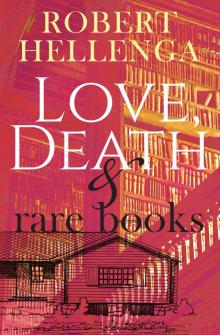 Love, Death & Rare Books
Love, Death & Rare Books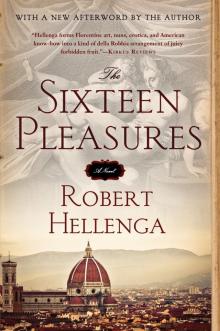 The Sixteen Pleasures
The Sixteen Pleasures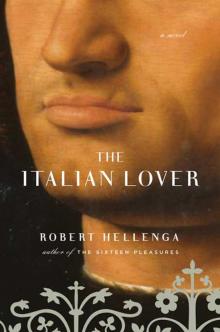 The Italian Lover
The Italian Lover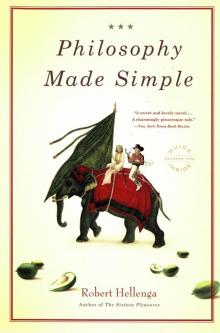 Philosophy Made Simple
Philosophy Made Simple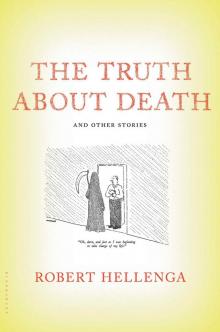 The Truth About Death
The Truth About Death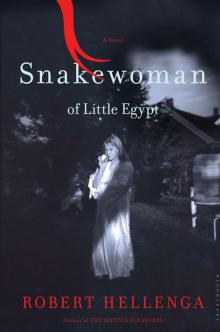 Snakewoman of Little Egypt
Snakewoman of Little Egypt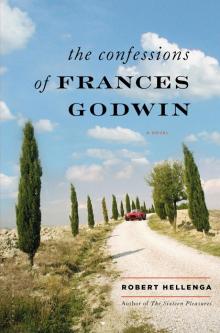 The Confessions of Frances Godwin
The Confessions of Frances Godwin